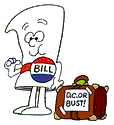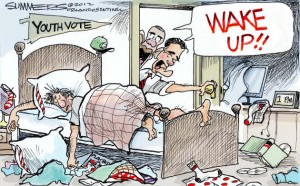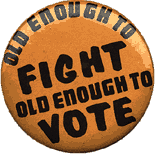In 1971, at the peak of the youth protests of the baby boom, the United States passed the 26th Amendment, lowering the voting age from 21 to 18. It was the fastest passage of any amendment in U.S history. Young people strongly supported the amendment because they believed that "if they were old enough to fight, they were old enough to vote".
Flash forward to 2015, as the old saying goes - history repeats itself. Now the discussion is over the voices of 16 and 17 year olds.
Rapidly more and more nations are deciding to lower their voting age, as well. Some of these nations include Austria, Argentina, Brazil, Germany, and the UK. The United States, as a result, is catching up. Two Maryland cities have already granted municipal voting rights to 16 and 17 year olds, and there's a recent push in San Francisco to follow their lead. Additionally, more than 15 states already allow 17 year olds to vote in primaries to nominate candidates for president, Congress, and governor. So, what are the pros and cons of taking this nationwide?
PROS:
 Teenagers spend more than half their day sitting in a class room, hearing about what their country is doing, what decisions their government is making, and how those decisions affect them, yet they don't have an influential voice on those decisions.
Teenagers spend more than half their day sitting in a class room, hearing about what their country is doing, what decisions their government is making, and how those decisions affect them, yet they don't have an influential voice on those decisions.
It’s no surprise that, by lowering the voting age, 16 and 17 year olds have an opportunity to become more politically aware. A detailed study of voters' ages and habits in Denmark found that 18 year olds were far more likely to cast their "first vote" than 19 year olds, and that every month of extra age in those years resulted in a decline in "first vote" turnout. Essentially, if you give a 16-year old a ballot, they might just vote. If you give a 19 year old a ballot, they might just lose it in their dorm rooms or try to trade it in for dining dollars. Getting young people to vote while still living in stable conditions (with their parents) may strengthen their willingness to vote as adults.
CONS:
When considering lowering the voting age, one must consider what is really on the minds of teenagers around the country: Prom, high school, friends… and voting?
One of these things are not like the other.
 Although there are some compelling reasons to consider lowering the voting age from 18, there are negative consequences for such an action, as well. First, one must ask if 16 or 17 year olds are at a point where they are mature enough to vote. Minors, according to current laws, are not yet mature enough to take part in consuming alcohol, tobacco products and make other important consent based decisions, they lack the “temperament”. In a sense, is voting any different?
Although there are some compelling reasons to consider lowering the voting age from 18, there are negative consequences for such an action, as well. First, one must ask if 16 or 17 year olds are at a point where they are mature enough to vote. Minors, according to current laws, are not yet mature enough to take part in consuming alcohol, tobacco products and make other important consent based decisions, they lack the “temperament”. In a sense, is voting any different?
According to the argument, due to their inexperience in the electorate they may also be easily swayed. Some believe young potential voters may be pressured to vote in certain ways due to the political beliefs of their teachers and parents. Therefore, they should have more time and experience to navigate the political landscape, time to craft their own political ideology, not just borrowing another’s. They could lack the independence and critical thinking skills to understand what is in their own best interest. They may find themselves at risk of being manipulated by other’s agendas.
Instead of what is the "cool" thing to do or wear, what your ballot could be the ticket into popularity.
That leads well into the question: are young people informed enough to vote? A democracy requires an engaged and informed electorate to thrive and 16 years olds are often under informed. Young people often are misinformed about the fundamental structure of government, and rarely keep up on current events. Holding off on voting may give them an advantage, by having more time to mature, and gain the adequate perspective to be responsible citizens.
So, now that you have heard two sides of the argument, what is your stance on this? Let us know!
